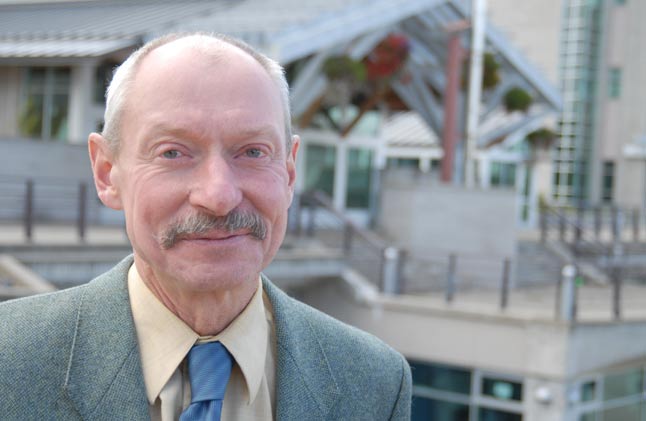Senior Academic Leader to Advance Regional Programming
Daniel Weeks, President and Vice-Chancellor of UNBC, is pleased to announce that Mark Dale will be the University’s first Dean of Regional Programs. The new position was created to provide coordination and senior academic leadership to UNBC’s delivery of courses and degree programs in Northern BC communities outside of Prince George.
Dr. Dale will be stepping aside as Vice-President Academic and Provost in order to take on the new role. He also served as Interim President between George Iwama’s departure and the appointment of Dr. Weeks.

Mark Dale. Download High-Resolution image.
“When I first came to UNBC six years ago, I was intrigued by UNBC’s connection to the North,” says Dr. Dale. “Now, and especially after serving as Interim President, I have come to understand how UNBC’s presence throughout the North is integral to the success of the University and the region itself. I’m eager to work with our regional campuses, our educational partners, communities, our alumni throughout the region, and our dedicated faculty and staff to realize opportunities for enhancing our presence throughout the region.”
“It’s fitting that we’re announcing this appointment on the eve of UNBC’s 25th anniversary, as we celebrate the creation of UNBC through the sheer will and tenacity of thousands of northerners,” adds Dr. Weeks. “UNBC belongs to the people of the North and they deserve to have someone of Dr. Dale’s experience providing leadership to our regional delivery.”
Dr. Dale came to UNBC in 2008 from the University of Alberta where he was Chair of the Botany Department and Dean of the Faculty of Graduate Studies and Research. His appointment as Dean of Regional Programs will begin January 1, 2015. The search for a new Vice-President Academic and Provost will begin immediately.
UNBC has regional campuses in Quesnel, Fort St. John, and Terrace as well as an affiliation agreement with Wilp Wilxo’oskwhl Nisga’a in the Nass Valley, research forests east of Prince George and near Fort St. James, and a research station on the Quesnel River near Likely.
To date, more than 1,100 students have graduated from UNBC through undergraduate and graduate coursework that has been delivered primarily through regional centres. In addition, in 2013, Continuing Studies provided training and professional development opportunities in 36 communities.
-30-